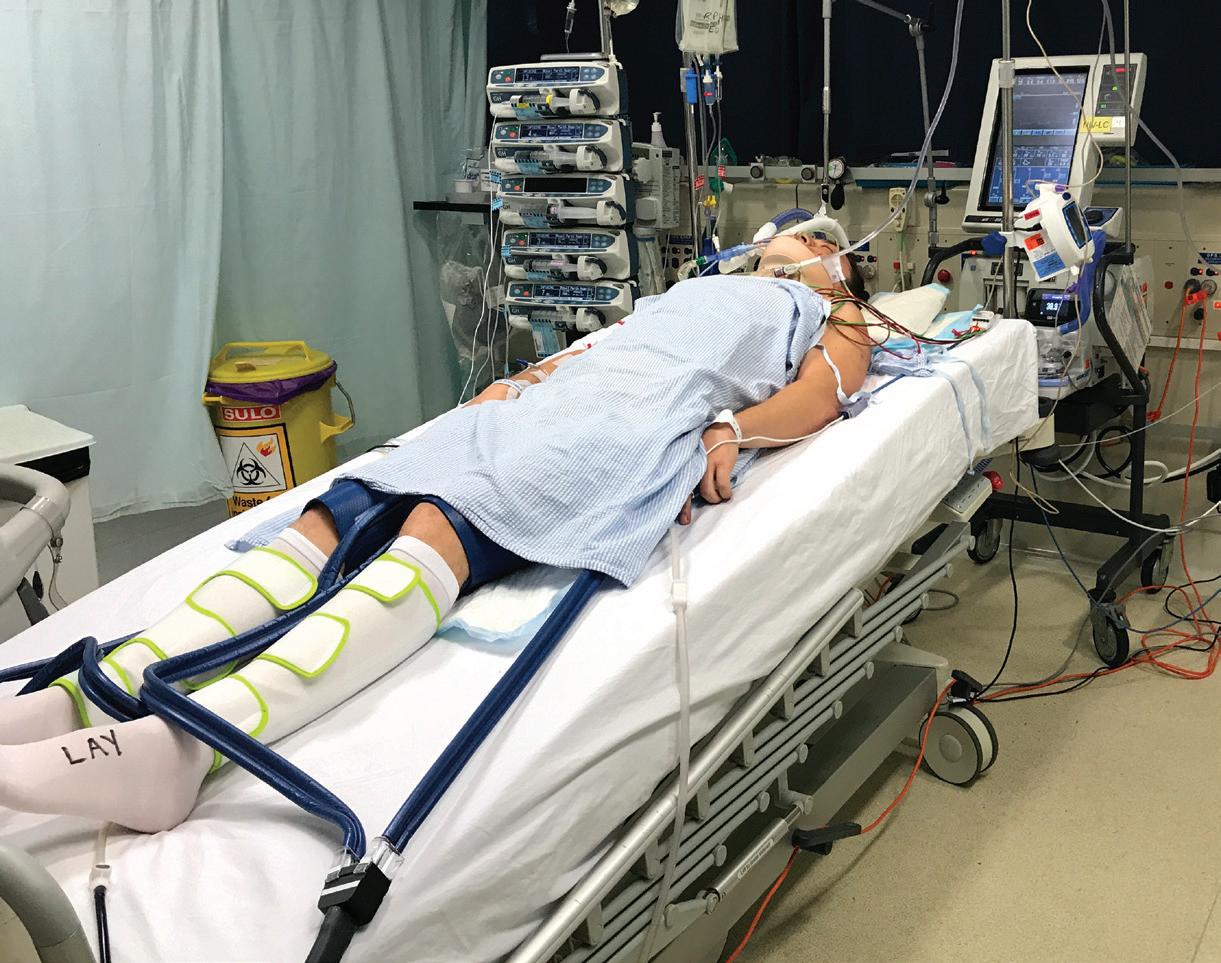
3 minute read
HEALTH
JADE LAY
Sergeant WA Police Force
Advertisement
HEALTH
I’m never leaving Police Health
I DIED FOR 15 MINUTES. When I woke up in hospital from an induced coma, I had lost 20 years of memory. I was asking for people no one knew. My wife and two sons, who were 10 and 7 at the time, were sitting at the end of my bed and I didn’t know who they were. I also didn’t remember I had bowel cancer.
I asked, so we’re married? And she said, ‘yes.’ And those are our kids? she said ‘yes.’ Naturally I said, ‘Well, I did pretty well for myself, didn’t I?’
While this made them laugh, many of the jokes I made hurt people’s feelings, as my humour and mindset were from a different time period.
Over time, I began to remember things. It’s funny how the brain works.
I remembered feeling very tired as I was riding home from work on my bike, that was my last memory before the incident.
I remembered I could grow a beard.
And I remembered the love I had for my wife, so I asked her to marry me a second time.
But there was secondary grieving too, having to process the losses of my loved ones again. Some returned memories weren’t the ones I wanted.
The cancer and chemotherapy were quite easy, but the memory loss I struggled with. The doctors told me I’d suffered a heart attack after an allergic reaction to the chemotherapy drug, affecting the electrical signals from my brain to my heart.
So, within the space of six months, I had been diagnosed with bowel cancer, lost 20 years of memory, and had my colon removed. Now I need to wear a colostomy bag for the rest of my life.
In this line of work, it’s hard not to get jaded. I was a regular, healthy, fit 37-year-old with no prior health issues. I never smoked, hardly drank, and I exercised every day. I definitely had all the ‘why me’ emotions to deal with.
Working as a detective in antichild exploitation, I’d seen a lot of bad people who ‘deserved’ it more, although you can’t stay in this headspace. It’ll ruin you.
After coming to Australia at 17 years old from New Zealand, with nothing but a backpack and $200, I viewed this as yet another challenge to overcome, to buckle up and do something about.
Detectives are intrinsically driven people. We’re motivated to catch the bad guys but after my memory loss, I started to see things in a different light. My work was not who I am, it’s what I do.
Most of my memory came back within six weeks, but I still struggle from time to time. I’m just so grateful for the care I’ve received.
Thanks to both Police Health and the WA Police Force, I didn’t wake up to debilitating medical bills. The wait for radiotherapy and chemotherapy in the public system is six weeks. Through Police Health, I received my treatment within 24 hours.
My wife’s family was exposed to the public system recently and we saw the stark difference. It’s not always easy to see the need for private health until someone close to you goes through a life threatening and life-changing experience.
Let me be that person for everyone else.
With two active boys who regularly need new mouthguards, orthodontic, physiotherapy and other health services, we need this generous level of coverage.
I have seen a lot, as a parent, detective, and sergeant. I know anything can happen. There’s not much you don’t see as a police officer.
Working in child protection investigations is extremely rewarding. The work is usually black and white; you don’t hurt kids. If we can intercept the situation before the kids get hurt, then they get to avoid trauma that otherwise completely changes the trajectory of their lives.
It’s fascinating work and being in the force is the best job I’ve ever had. I’m never leaving Police Health.





